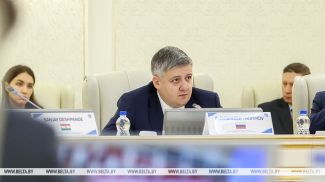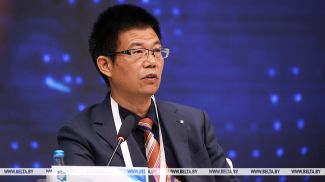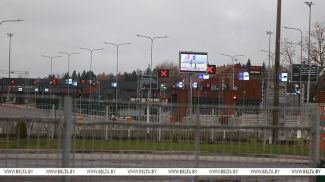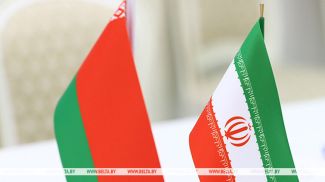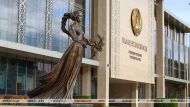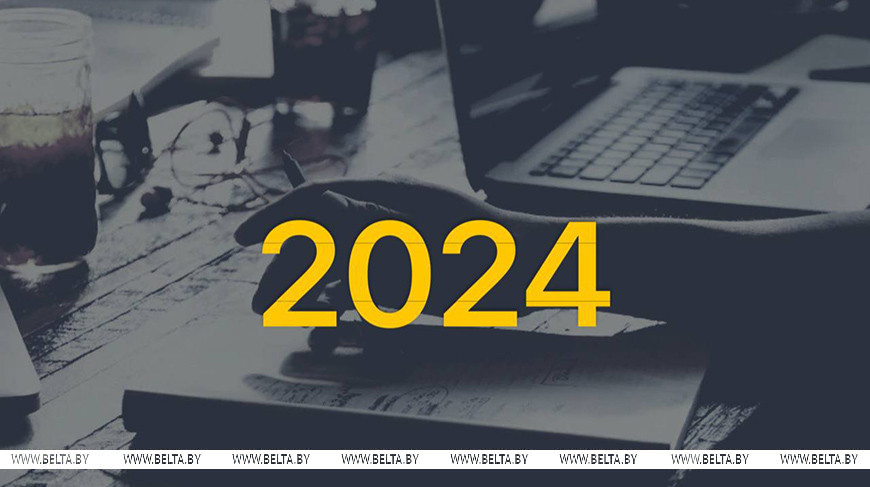
The West's long-range plans and Russia's formidable response, the fall of Damascus and inhuman cruelty in Krokus, elections behind barbed wire in the United States and the struggle for the right to dream in small Georgia, persecution of Orthodoxy in Ukraine and the travesty of God at the Paris Olympics, the power of attraction of BRICS and the fall of idols in Europe.
BelTA recalls the most significant events of 2024.
Ukraine conflict on the nuclear threshold
The third year of the conflict in Ukraine. Or the third year of the world war? Since the first days the conflict has been perceived as a proxy war between the West and Russia in the Ukrainian theater of war. But if earlier Western actors kept a low profile, supplying weapons to Kiev and bombarding Russia with sanctions, this year the West decided to drop the masks.
French President Emmanuel Macron added fuel to the fire by announcing the possible dispatch of Western troops to Ukraine. By doing so, the French president actually allowed the possibility of a direct clash between the NATO military and the Russian army. But it seemed that Macron failed to gather a coalition of the like-minded in Europe. Now the French president is promoting a new idea - sending European peacekeepers to Ukraine after the end of hostilities.
Although NATO troops have not officially entered Ukrainian territory, mercenaries from Western countries have entered Russian territory. In August, the Ukrainian armed forces launched an operation in Kursk Oblast. Unexpected and logically inexplicable, if we look at it from the military point of view. By that time, Russian troops had significantly advanced, the main front was cracking at the seams, and the Ukrainian army was facing a shortage of weapons and soldiers. In these conditions, Ukraine sent tens of thousands of heavily armed soldiers to Russia.
The fact that the world is on the brink of not even a world war but a nuclear war became evident in November, when Biden authorized Kiev to strike Russian territory with U.S.-supplied long-range missiles. Kiev also received satellite intelligence and missile input data from Washington. After all, without them, long-range strikes are impossible.
Ukraine attacked Russia with U.S. ATACMS first and then with British Storm Shadow missiles. The escalation reached sky-high limits.
Russia's response was twofold: nuclear and formidable. In the first case, the Kremlin unveiled a new nuclear doctrine that markedly lowered the threshold for the use of nuclear weapons. The next step was the strike with the newest hypersonic system, the Oreshnik. Non-nuclear yet formidable Oreshnik, which can be compared to a nuclear weapon in terms of its force.
After the Oreshnik, the focus has slowly begun to shift from escalation to the topic of peace settlement. The approaching inauguration of the next U.S. President Donald Trump has played its share too. The Republican's recent statements suggest that he is still inclined to curtail the “Ukrainian project,” but on certain conditions. However, Russia has its conditions too. Therefore, in the near future, we can expect both sides to engage in a tacit dialogue, trying to find common ground.
We would like to believe that the escalation stops this year. There is nowhere to escalate to. There is only the abyss ahead. We can only hope that 2025 will finally bring peace and security to our region.
The year 2024 was a record year in terms of the number of election campaigns. Elections were held in almost 80 countries around the world. But in terms of spectacle and unpredictability the presidential elections in the United States topped the chart. The world has already gotten used to the U.S. elections turning into reality shows. This time the show turned into a blockbuster with elements of action and dystopia.
The current electoral cycle in the United States actually began with the notorious storming of the Capitol. Even though it took place before Biden's inauguration, it had a huge impact on political life in the United States. Then all kinds of events followed First, it was the policy to ‘cancel’ Trump, attempts to sue him and then to kill him. This only contributed to the Republican's popularity. Then we had rumors of Biden's incapacity and his replacement in the election campaign by Kamala Harris.
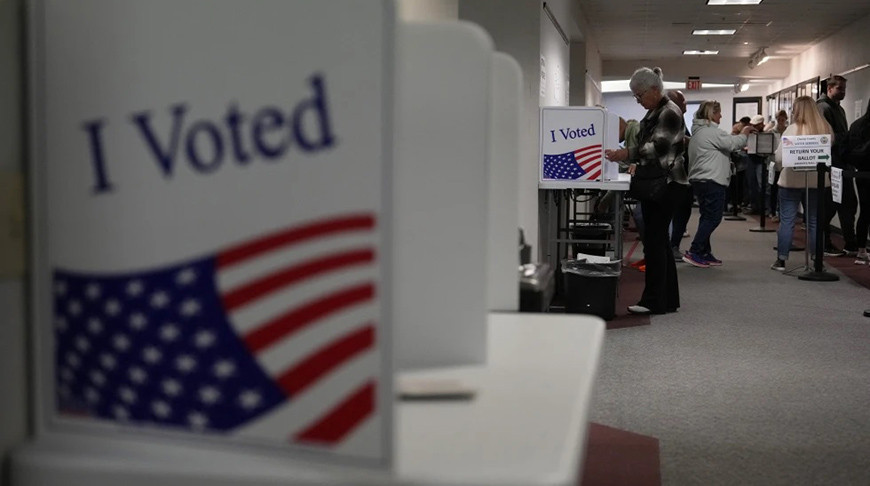
The civilian population was also preparing for the “night of judgment” after the election. In Washington, fearing looting and pogroms, owners of office buildings, stores, hotels, and cafes boarded up windows on the first floor and blocked doors. Washingtonians compared what was happening to a dystopia of fear and anxiety.
The Biden administration has made it clear: the rampant “street democracy” will not be tolerated in the United States. By the way, the Democrats had reason to worry. As exit polls showed, Americans were seriously unhappy with the current administration. In the four years since the storming of the Capitol, people's anger has only increased, and the split in American society has become even more noticeable.
But it didn't go to extremes this time. The unsinkable Trump pulled out a victory, and the Democrats conceded defeat. Now both the United States and the rest of the world are waiting for Trump's inauguration, which is scheduled for 20 January.
The parliamentary elections in Georgia, which took place in October, may well compete with the US presidential election as emotions were also running high there. More than half of the voters cast their ballots for the ruling party Georgian Dream - Democratic Georgia. However, this result was not to the liking of the Western elites. Georgian Dream was put in the West's bad books. The West demanded new elections, began to impose sanctions against Tbilisi, threatened to sever economic ties and freeze Georgia's accession process to the EU.
Where is such hostility coming from? From the fact is that Georgian Dream dared to defend national interests. It stood up for family values, rejecting LGBT propaganda. It began to expose foreign agents of influence. And most importantly, it refused to support anti-Russian sanctions and open a second front against the Russian Federation.
The West's political games in Georgia are accompanied by protests and riots involving opposition supporters. The protests are actively supported by the country's former president Salome Zourabichvili, who openly called for voting for the opposition before the elections, and is now threatening the government with a coup d'etat.
But when it comes to breaking the law and even usurping power by political minions, Western elites pretend that everything is okay. In general, this year has laid bare the double standards of Western democracy. Take, for example, the presidential election in Romania, where independent candidate Calin Georgescu, who criticizes NATO and supports Russia, won in the first round. The 'dirt' was immediately found on him, and the election results were annulled.
In neighboring Moldova, the presidential election was held against the backdrop of mass searches and arrests of opposition party activists, pressure on journalists, and suspension of broadcasts of some TV channels. However, this did not bother Western guardians of democracy.
Maia Sandu was re-elected as president despite the fact that the majority of voters living in Moldova voted for her opponent. So it was the diaspora whose votes played a decisive role in the victory of the candidate who was to the West's liking. The same situation occurred during the referendum on Moldova's accession to the EU. Even supporters of European integration in Moldova called the voting results controversial.
The parliamentary elections in France were no less interesting this year. In order to prevent the victory of the right-wing National Rally party, Macron's centrists banded together with the alliance of left-wing forces. By removing more than 200 of their candidates from the ballot before the second round, they avoided splitting the votes of the National Rally opponents. The French elections were quite a spectacle, a paragon of political jockeying. It only lacked respect for the people's choice. And if Macron and the likes of him in the West disregard the opinions of their own citizens, what can we say about their respect for the rights of Georgians or Moldovans.
The fall of idols. How did Europe end up without leaders?
Europe is now leaderless. Back in the day, the tone of European politics was set by France and Germany. Today, these countries are bogged down in political and economic crises.
Everything that is happening to Europe today is a direct consequence of the anti-European war unleashed by the United States. In order to get rid of competitors - the EU and Russia - the Americans launched the “Ukrainian project”. The European elites finished the job by imposing sanctions against Russia and cutting off their economies from cheap Russian energy, replacing it with super-expensive American LNG. This resulted in an energy crisis, deindustrialization, bankruptcy of enterprises and mass layoffs. An economic crisis, one way or another, paves the way to a political one.
The situation in Germany is a case in point. Just a couple of years ago, the German economy was dubbed the locomotive of Europe. Today, German economy is dragging the entire European Union down. The German authorities, driven by foreign interests, deprived Germany of Russian energy. Thus, the strongest economy in Europe lost its props. And the Nord Streams, apparently, were blown up in order to cement the new reality and not to give Berlin a chance to come to its senses.
Today the country is grappling with economic crisis. Germany's GDP is expected to shrink by 0.1% by the end of the year. No GDP growth will be posted for the second year in a row. The business climate index across all sectors of the economy fell to its lowest since May 2020.
More and more German companies are facing bankruptcy. This year, the number of companies going under will reach 22,400. A similar situation happened in 2009 and 2010, when the country was experiencing the consequences of the global financial crisis.
Bankruptcies lead to layoffs. This year alone, about 320,000 people in Germany might lose their jobs. The situation is the worst in the German auto industry. Take, for example, the Volkswagen concern. In the autumn it announced plans to close at least three factories and cut tens of thousands of jobs.
The decline in the economy provoked a political crisis. This year saw the collapse of the ruling coalition, the loss of the confidence vote by Chancellor Olaf Scholz, the dissolution of parliament and the early elections to the Bundestag. The country is in the midst of an internal political struggle. However, along with political jockeying, politicians need to figure out how to pull the country out of the economic crisis. After all, it is much more difficult to create than to destroy.
This year, France also faced a political crisis. The situation was similar to that in Germany. The French had long been at odds with their president and government. It is no coincidence that large-scale protests break out in the country every now and then - be it the "yellow vests" actions, marches against the pension reform, racial discrimination or police brutality. But Macron has one answer to everything - the crowd is illegitimate.
The way the French leader treats his people could be seen during the parliamentary elections, as mentioned above. After having prevented Marine Le Pen's National Rally from coming to power, Macron abandoned his allies - the alliance of left-wing forces. After the above-mentioned maneuver involving the recall of candidates, the left took first place in the parliamentary elections. However, Macron appointed the center-right Michel Barnier as the prime minister. The left was outraged. And when Barnier tried to push through a budget bill bypassing parliament, Le Pen's party was also riled up. All this resulted in a vote of no confidence and the prime minister's resignation. And today, calls to resign are also being made against Macron. But the French president is no stranger to this. He has repeatedly made it clear that he does not plan to step down.
Of course, in such a situation, neither France nor Germany can lead the way for other EU countries. As Politico aptly noted, the French president "is not followed by others," and the German chancellor is a "very weak leader."
Countries like Poland, which do not hide their ambitions and desire to dominate the European Union, are trying to take advantage of the situation. Poland's presidency in the EU begins on 1 January. It is worth assuming that Warsaw is using this opportunity to strengthen its influence in Europe. Another thing is that the Polish authorities act entirely in line with the interests of the United States. This means that pro-American policy will continue to replace pro-European policy.
Community of the future. What did the BRICS summit in Kazan demonstrate?


This year the Ukrainian authorities have de facto legalized the persecution of the canonical Ukrainian Orthodox Church (UOC). In August, the law to ban the Ukrainian Orthodox Church (UOC) in Ukraine passed the final reading in the Verkhovna Rada of Ukraine. Kiev said that this law contributes to the "spiritual independence" of Ukraine. A few days later, Vladimir Zelensky signed the law which allows banning the canonical Orthodox Church.
In 2018, Ukraine established its own church, the “proper” one. The Orthodox Church of Ukraine (OCU) was formed from two schismatic religious organizations. Currently, with the tacit support of law enforcement officials and sometimes in collaboration with them, schismatics conduct raids on UOC churches, take out icons and other religious items, seize cathedrals, and attack priests. Kiev supports all these actions.
In December, Vladimir Zelensky said in an interview with the American TV channel CBN that Ukraine is a very faithful and religious country. People “fight and pray” and faith is very important to them.
Flavius Mihaies, a journalist for The American Conservative, shared an impressive story about the current situation of Orthodox believers in Ukraine. He visited dozens of Orthodox parishes in Ukraine and witnessed how UOC priests and parishioners were violently expelled from their churches and parishes were forcibly transferred to schismatics.
There were cases when parishioners tried to defend churches. There were fights, many people were hurt. Attempts to seek help from law enforcement agencies came to nothing. Court cases were dismissed, delayed, ignored, or closed.
The Ukrainian authorities put pressure not only on the UOC and clergy, but also on ordinary parishioners. Military officers came by multiple times to conscript men and hand out draft notifications during church services. People believe the conscription is selective because of their affiliation with the UOC.
Reverse side of medal. What did the Paris Olympics show?
We would like to conclude the review of world events with the Paris 2024 Olympics. Unfortunately, this event will go down in history not only for its sporting achievements.
During the opening ceremony, Emmanuel Macron said that the Olympic Games showed the world the true face of France. It is hard to disagree with this. It is important to note that France showed its face not only at the opening ceremony, but also during the preparations for the main start of the quadrennium.
Thanks to the Olympics, the whole world could see how the French authorities dealt with poverty by expelling the poor from the capital, just to avoid embarrassment in front of foreign guests. During the year leading up to the Games, over 12,000 people were subject to “social cleansing”. The authorities tried to present Paris as a “city of light”, almost free from poverty, with “clean” neighborhoods, without beggars, drug use and sex work.
Homeless people were sent to regional centers for temporary housing, but their stay was limited. Afterwards, they returned to the streets, back to Paris. Therefore, by the beginning of the Olympics, the streets of the French capital returned to their usual look, with tents and cardboard shelters.

While the authorities could gather the poor and send them out of sight, they could not do that with murderers, robbers and rapists. Despite the large numbers of police officers in Paris streets, the crime rate in the city was shocking. Athletes, tourists, and celebrities who visited Paris during the Olympics shared stories on social networks about robberies and violence. The Brazilian football legend Zico was robbed of a briefcase containing a Rolex watch and jewelry. Unknowns stole a bag of the deputy minister of sports and youth policy of South Sudan, containing money intended for the country’s delegation. The cyclists of the Slovak national team were also unlucky. They were robbed in the Olympic village, with dozens of bicycle tires, spare parts, and several switches being stolen.
The Olympic athletes were unhappy due to the poor organization and living conditions. Swimming in the Seine, which Paris residents call a dirty and smelly river, led to intestinal infections among the athletes. Some swimmers chose not to risk it and withdrew from future events. The organizers also provided cardboard beds for the athletes, which were uncomfortable to sleep on.
The organizers of the Olympics initially refused even to install air conditioning in the Olympic Village due to concerns about environmental damage. Only after the protest of some countries' delegations, the organizing committee agreed to purchase air conditioning units.
Perhaps one of the most controversial aspects of the Paris Olympics was its opening ceremony. The very ceremony that, according to Macron, showed the face of France. The ceremony recreated famous painting of Leonardo da Vinci “The Last Supper”, which refers to the final meal that Jesus Christ shared with his 12 apostles before he was crucified. But it was a provocative and LGBT-themed parody. The obscene show featured dancers, transgender performers and an almost completely nude figure covered in blue paint.
The opening ceremony undoubtedly sparked controversy. Many athletes, politicians, religious and public figures called the Last Supper parody an insult to millions of Christians around the world. It is notable that Muslim countries, where Jesus Christ is honored as a prophet, also condemned it.
The Olympic organizers back pedaled amid the criticism. They said there was no parody, and the performance was inspired by Greek mythology. However, few people believed it. As a result, the organizers received threats. The organizing committee had to apologize. The video of the opening ceremony was removed from the IOC website. But it left an aftertaste.
This situation provoked outrage and arose debates about Khelif’s gender, gender discrimination and lack of fair play.
After the fight, Carini announced her retirement from the sport, while Khelif faced a barrage of criticism and harassment. Who is right and who should be blamed in this situation?
It is clear that sports officials, who support the “new standards” with the third gender and pride parades promoted by the West, chose to ignore the fact that an athlete with a male chromosome enters the ring and beats a woman. The issue of gender remains a sensitive one. The problem is that Western elites made this issue public, trying to score points for themselves. The Olympic Games Paris showed us the consequences of this approach.
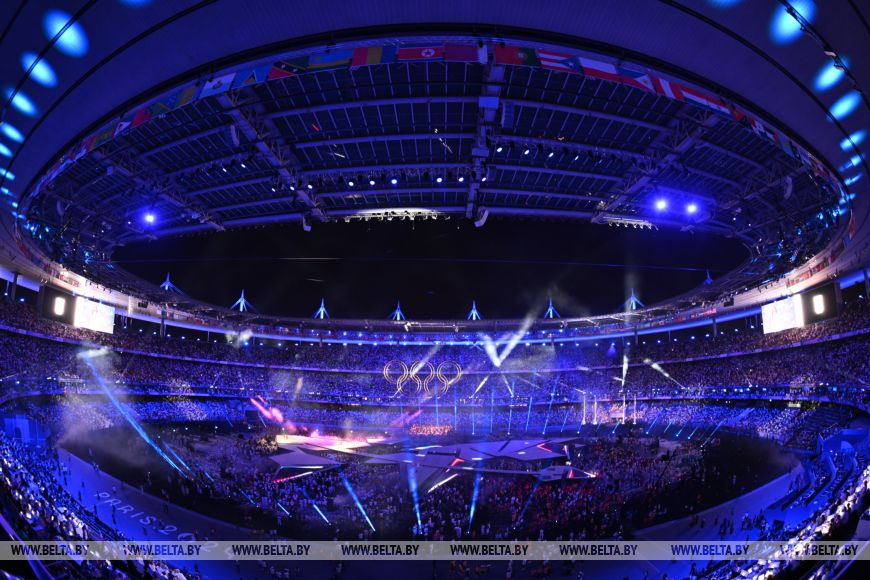
This is how the year has passed. It was a challenging, controversial and even painful year in many respects. The world is changing before our eyes, and big changes and transformations are similar to disasters. Many events of this year predetermined how the world will develop in the near future. However, we would like to point out that everyone writes his own story. We have the power to choose our own path in this huge diverse world, defend our traditions and follow our ideals.




